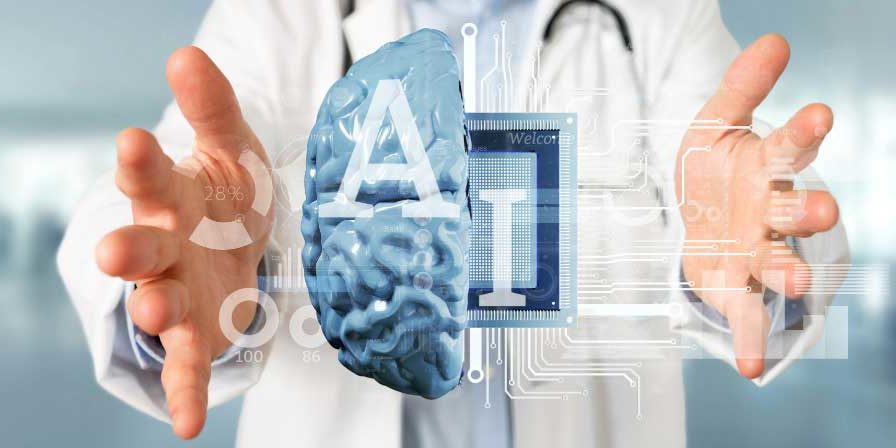While machines can predict outcomes and optimize clinical procedures in a broad assortment of settings, it has been researched that leading-edge aspects like machine learning have a colossal and positive influence. Healthcare holds a composed form for AI & ML-driven transformation fuelled by data sources’ affluence – genomic sequences, mobile devices, electronic health records, claims data, medical imaging, and even embedded sensor data.
The Market: AI in Healthcare
The market of Artificial Intelligence in the healthcare sector is prone to constant growth, provided the following aspects:
- The sprawling volume of healthcare data
- Mounting complexities of databases or metadata
- The escalating requirement to overcome heavy healthcare expenses
- Advancement of computing power and diminishing hardware costs
- The increasing number of cross-industry partnerships and collaborations
- The mounting imbalance amongst the health workforce and patients having the requirement for improvised healthcare services
- High adoption of this technology by numerous pharmaceutical and biotechnology companies vide the world to facilitate vaccine or drug development processes for the COVID-19 pandemic.
As reported by the Markets and Markets, the global AI in the healthcare market size is anticipated to develop from USD 4.9 billion in 2020 to attain USD 45.2 billion by the end of 2026. Also, it is forecasted to expand at a CAGR of 44.9% during the forecast period.
Let’s look at the AI/ML-powered applications that the healthcare sector is pondering on…
- AI has effectively assisted in radiology and pathology
- Breast Cancer Detection has founded Deep Learning as a great aid in the diagnosis
- The combo of AI/ML has helped tremendously in the treatment of Prostate Cancer
- Doctors have found a perfect surgery assistant in the AI-driven physical robots
- AI has marked a great value and set an exceptional benchmark for healthcare operation management and fulfilling patient experience
- AI and ML has proved significant in the discovery of drugs
Having known the use-cases of AI in the Healthcare segment, now it’s time to take a glance at the significant ways through which AI is harnessed into healthcare…
Healthcare Fastened by Artificial Intelligence
Diagnosis and Support with the Smart Virtual Assistant:

AI brings into the domain the Smart Virtual Assistants that could provide natural language processing, an approach to examine and integrate natural language and speech. Hence, staying as helpful as an in-human counseling session. Besides, the AI-driven Smart Virtual Assistants are capable enough to help patients instantly book an appointment with the doctors all by themselves. Thereby assisting people in living a much healthier life without any assistance of a human caretaker.
AI-Based Health Monitoring Devices:
It would have never got much easier to monitor your health on the go if it was not for the AI edge involved. AI-assisted health monitoring devices have made it much convenient to keep the vitals in check 24/7, further aiding in detecting anomalies in the body’s functioning. Machine Learning can accelerate and automate the health monitoring process, allowing for easier detection of anomalies in different vitals like temperature, abnormality in heart rate, blood-oxygen levels, etc., with smart sensor devices. Moreover, the recorded medical data from such wearable devices can be analyzed through ML classifier models. Also, it can recommend the necessary medication, activities, exercises, and more to ultimately assist the user to live a much healthier life.
Smart Health Records:
Smart Health Records have proved effective when it comes to fetching the patient’s health history. In scenarios where patients are not in the condition to express their complete medical history, it is the AI-assisted chatbots that aids in furnishing the Smart Health Records. Machine learning in healthcare can help simplify the processes on the one hand while optimizing time, saving effort, and mitigating expenses on the other. Techniques like document classification that employ vector machines and ML-based OCR recognition are already proving to help prepare many helpful digital health records compared to the generic paper-based records.
The Final Say
AI and ML with the latest technologies like audio data processing and visual data processing help healthcare firms adapt models addressing various challenges. The patient-related data, being crucial, requires apt technology to secure, maintain, and deploy appropriate healthcare services – the traits that AI technology possesses to the optimum. Wanna get your hands on custom tailor-made Healthcare products driven by AI? Connect with Teksun’s tech mavens and take the first step in fulfilling your dreams in the Healthcare Sector.



